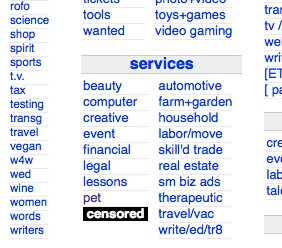If you plan to work in the media industries as a professional content creator, you need to pay close attention to the current debate over SOPA and PIPA. The two bills being debated in congress are designed, with substantial input from lobbyists representing “old media” interests, to shut down global websites that profit from the illegal distribution of copyrighted material: music, films and TV shows primarily. The issue is being framed by internet and new media companies (largely located in Silicon Valley) as a battle for internet freedom of expression and the rights of end users. Several major internet sites have gone black today or have modified their home page to express solidarity with the protest movement. But what about the rights of individuals and companies (largely located in NY & LA) that create media content?
Much of the early discussion that I’ve seen on Facebook and Twitter has bought into the new media companies’ arguments that this attempt to curtail copyright infringement will stifle creativity and growth on the internet. Others argue that the regulatory oversight will amount to censorship of creative expression. This is completely understandable from the perspective of those who are end users of content rather than creators. For the average consumer, more access to free content seems like a good thing. However, if you’re thinking that you’d like to work in the media industry as a content creator, you might want to consider what the future holds for you if creativity is not rewarded and protected.
Copyright laws exist to protect intellectual property and to reward the creative community for their investment of time and resources in the creative development process. Music, video and film content does not create itself, and those responsible for its creation and distribution deserve legal protection from those who would like to acquire, redistribute, or aggregate that content for their own personal or corporate benefit.
Now, while it may be clear that I am in favor of reasonable protection for copyright holders, I am not convinced that SOPA and PIPA are well-designed legislative tools to accomplish that goal. The video below points out some of the weaknesses of these bills and raises serious questions about their practical application.
[vimeo http://www.vimeo.com/31100268 w=398&h=224]
So, what do you think about SOPA and PIPA? Bad idea? Good idea? Good idea poorly executed?


